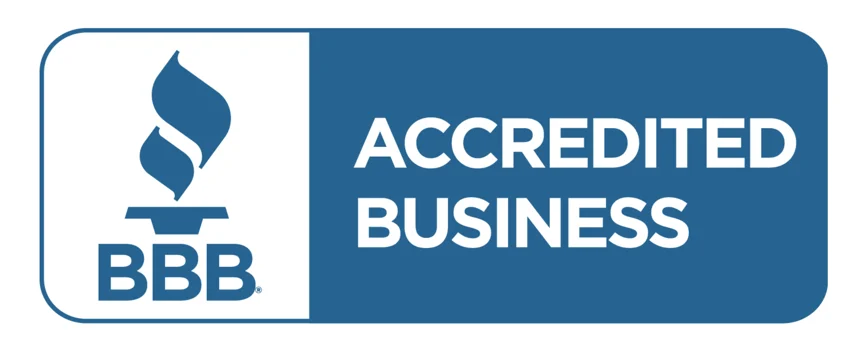If you’re struggling to keep up with mortgage payments and are looking for a way out of debt, or you need to move out of your mortgaged home for a job or change in status, a short sale could be a good option for you. Here’s everything you need to know about a short sale, from what it is to the sale process to some tips for how to make your short sale a success.
What is a short sale?
A short sale occurs when a homeowner going through financial hardship sells their home for less than the amount owed in the mortgage in order to get out from under debt and avoid foreclosure. This is often in response to a new financial hardship or reason to move. When selling in a short sale, the earnings go directly to the lender to pay the mortgage. The remainder of the mortgage sum might be forgiven by the lender. Or, if the lender issues a deficiency judgement, the borrower is required to pay the difference.
Keep in mind that a short sale can be a lengthy process. This is because various stages require the bank’s approval. Short sales also involve a lot of paperwork to be completed and filed correctly. Throughout the process, you’re at the mercy of your lender and their schedule – and they are in no rush to sell your home while it can still be profitable.
Why should I sell my home in a short sale?
A short sale might be a great option if:
- You need to sell your home quickly because your status or situation has suddenly changed, such as divorce or job relocation
- If you’re behind on payments and want to avoid foreclosure
- If your home needs a lot of repairs or its value doesn’t match the amount you owe
Benefits of a short sale:
Selling your home in a short sale has many advantages:
- You can sell your home as-is without making any changes or repairs
- You can find a buyer who will pay cash, making for a simple transaction
- The right buyer or investor will work with you and your lender’s schedule
- You can save points on your credit score by avoiding foreclosure
How do I sell my home in the short sale process?
Selling your home in a short sale can be complicated and time-consuming, but for the extra effort it could seriously pay off. Here are the ins and outs of the short sale process:
You Qualify for a Short Sale
Since it’s ultimately up to your lender whether they will allow you to short sell your home, certain qualifications will make it more likely your lender will approve. Before a lender will consider a short sale, you have to already be in default on your mortgage payments and be able to show that you are unable to make payments.
You should also be able to demonstrate that the cause of financial hardship is recent, such as medical costs or unexpected loss. If you weren’t up front with your lender about your situation prior to signing the mortgage agreement, they likely won’t be willing to help you resolve the debt and get back on your feet.
Your lender is also unlikely to accept a short sale if you have a cosigner. If you default on the loan, your cosigner will automatically be required to pay and selling will not be an option.
The Lender Is Open to a Short Sale
Before you can sell your home, your lender must agree. Talk to someone at the company who is authorized to make decisions on your lending agreement before going ahead with the process. Keep in mind if they think they could earn more from selling your home after its foreclosed on, they won’t want to help you sell your home in a short sale.
If, however, they are open to the option of a short sale, you can move on to finding the appropriate buyer.
Finding the Right Buyer
If your lender is open to a short sale, you must then find someone to purchase your home. There are various ways to do this, but most will list their home with a real estate agent or reach out to a reputable real estate investor.
The major benefit of an investor is they can wait for the lender approval process which can often delay a sale by several months. A traditional buyer, on the other hand, probably wants to move toward closing right away and could become impatient while waiting for a bank to sign off. If forced to wait too long, they might find another home to purchase.
Bank Accepts Short Sale Offer
If a buyer is found, the lender still has to accept or deny the offer. SInce they will likely lose money from the arrangement, it might be difficult to convince them to sell. If your lender believes they can make more money in a foreclosure they will most likely deny the offer. However, a lender may accept a short sale offer to avoid having to make repairs and sell your home traditionally. A short sale could be more profitable and timely than going through the foreclosure process.
Sell Your Home in a Short Sale
Once the lender accepts the offer, the buyer pays your lender the agreed-upon amount. This payment goes toward the lien on your home, which is just one part of the mortgage. The other part of the mortgage is the promise you made to pay back the loan. Your lender may still require you to pay the difference between the sale price and the value of your mortgage. If they do not forgive this sum they could hold you to this agreement by issuing what’s called a deficiency judgement against you in order to collect the money.
When the home is sold to a new owner, you must remove your belongings from the property. Once rid of your home and the debt that came with it, you are free to move on with your life.
How long does a short sale take?
While the process varies for everyone, short sales typically require a lot of paperwork and waiting periods for lender approval and can take from several weeks to months. Unfortunately, you’re often at the mercy of your lender, moving through the process according to their schedule and waiting on their judgement for whether you can fulfill your mortgage contract and free yourself from the debt. Be patient and seek out experts for help. Incorrect paperwork will delay the process further, so it’s better to be extra thorough when completing all necessary forms.
Short Sale Best Practices:
Here are some general tips for navigating the short sale process that will help things go smoother with minimal hassle.
Be honest with your lender.
Advise them of your situation when looking at financing options. It is equally advantageous for the lender to have an agreement you can repay. If a short sale isn’t a good option, work with your lender on a repayment plan.
Find a lawyer who can help you present your case.
Many attorneys and tax experts specialize in this difficult process and can help you navigate your financial records and compile the necessary paperwork.
Consult a real estate agent or a reputable real estate investor.
Lean on professionals to help you make the short sale a success and be ready to sell your home as soon as your lender agrees.
Be patient and keep reasonable expectations.
The short sale process can be long and complicated. Go into the process with an open mind and be flexible when it comes to your lender’s requirements. Focus on the possibility of walking away from the situation debt-free and in a good position to rebuild your credit and move forward.
I want to sell my home in a short sale. How do I find a buyer?
A short sale is one key way to get out from under major mortgage payments. If you’re working to arrange a short sale with your lender, and just need a buyer, let Hometown Development help. We purchase properties in any condition, for cash, and we can help ensure your short sale goes through. Call us at 616-379-3077 or leave us a message online, and we’ll get back to you with more information as soon as possible.











